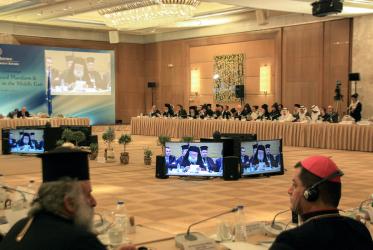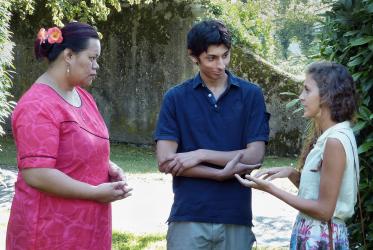The World Council of Churches (WCC) and the International Jewish Committee for Interreligious Consultations (IJCIC) met formally on 25-27 June in Paris, under the theme “The normalization of hatred: challenges for Jews and Christians today”. This meeting took place at a time of significant challenges in public and religious life for many communities around the world. At the meeting Peter Prove, director of the WCC Commission of the Churches on International Affairs, presented the WCC policies on antisemitism and the WCC’s work for human rights for all. The WCC News met with him after the meeting.
22 July 2019







